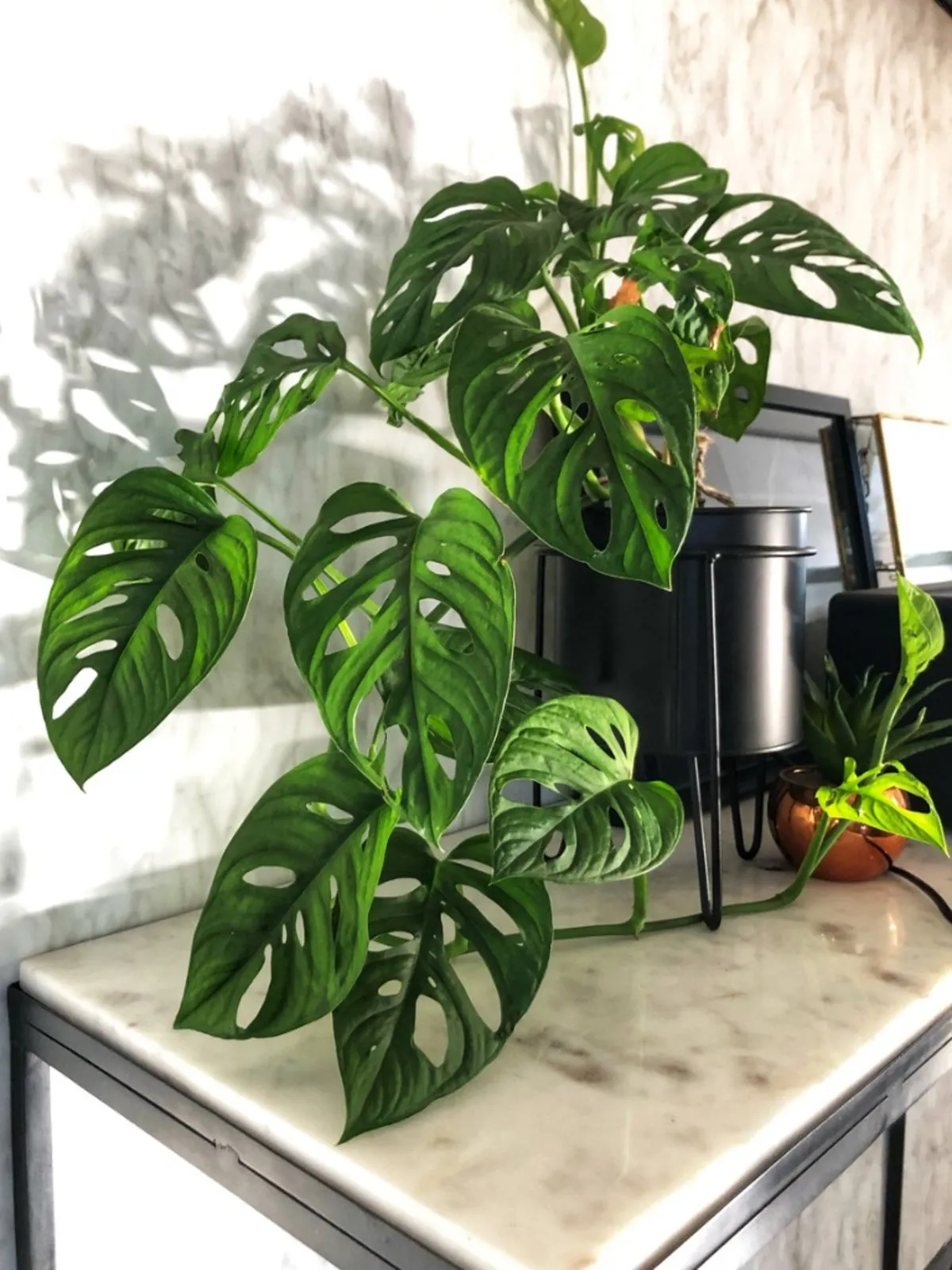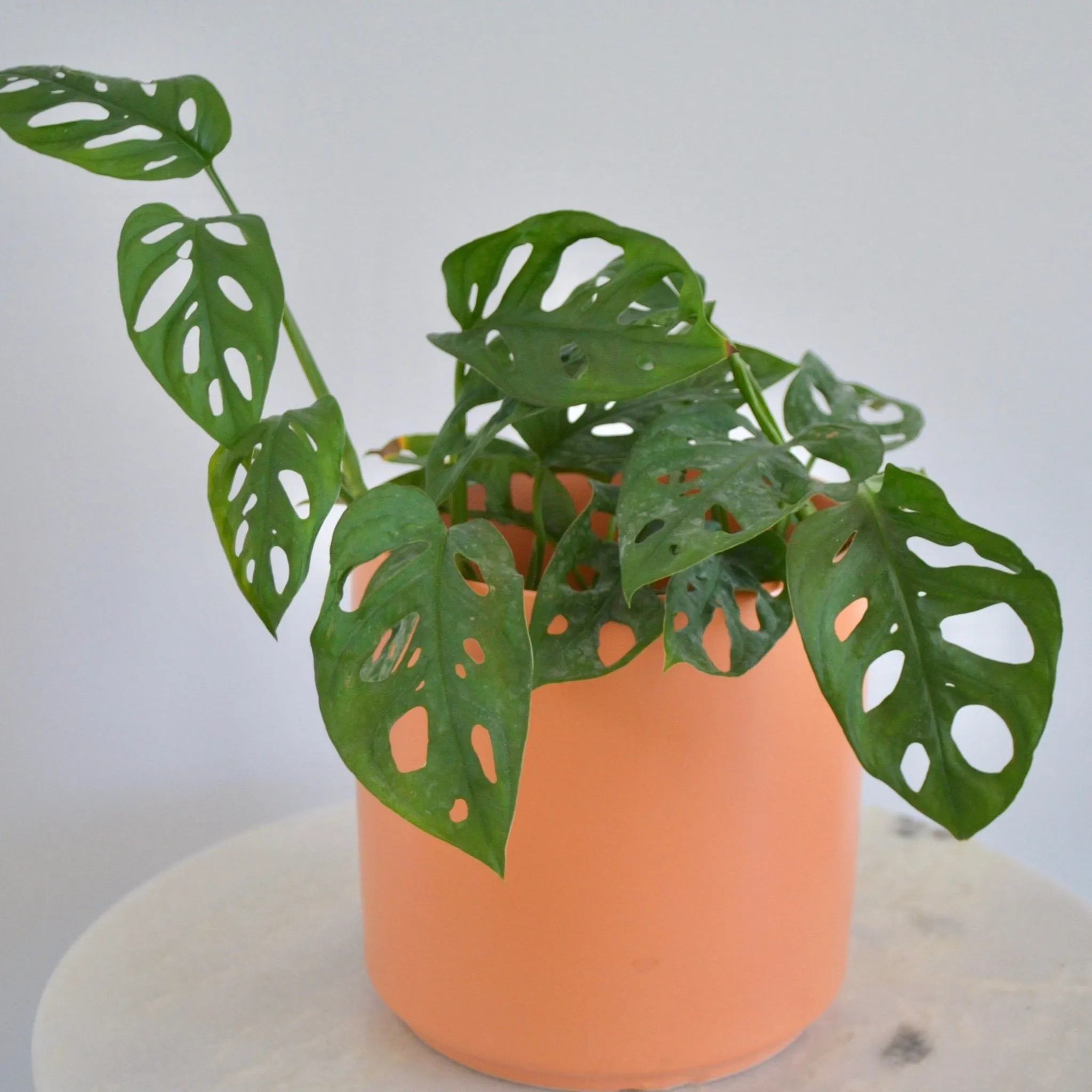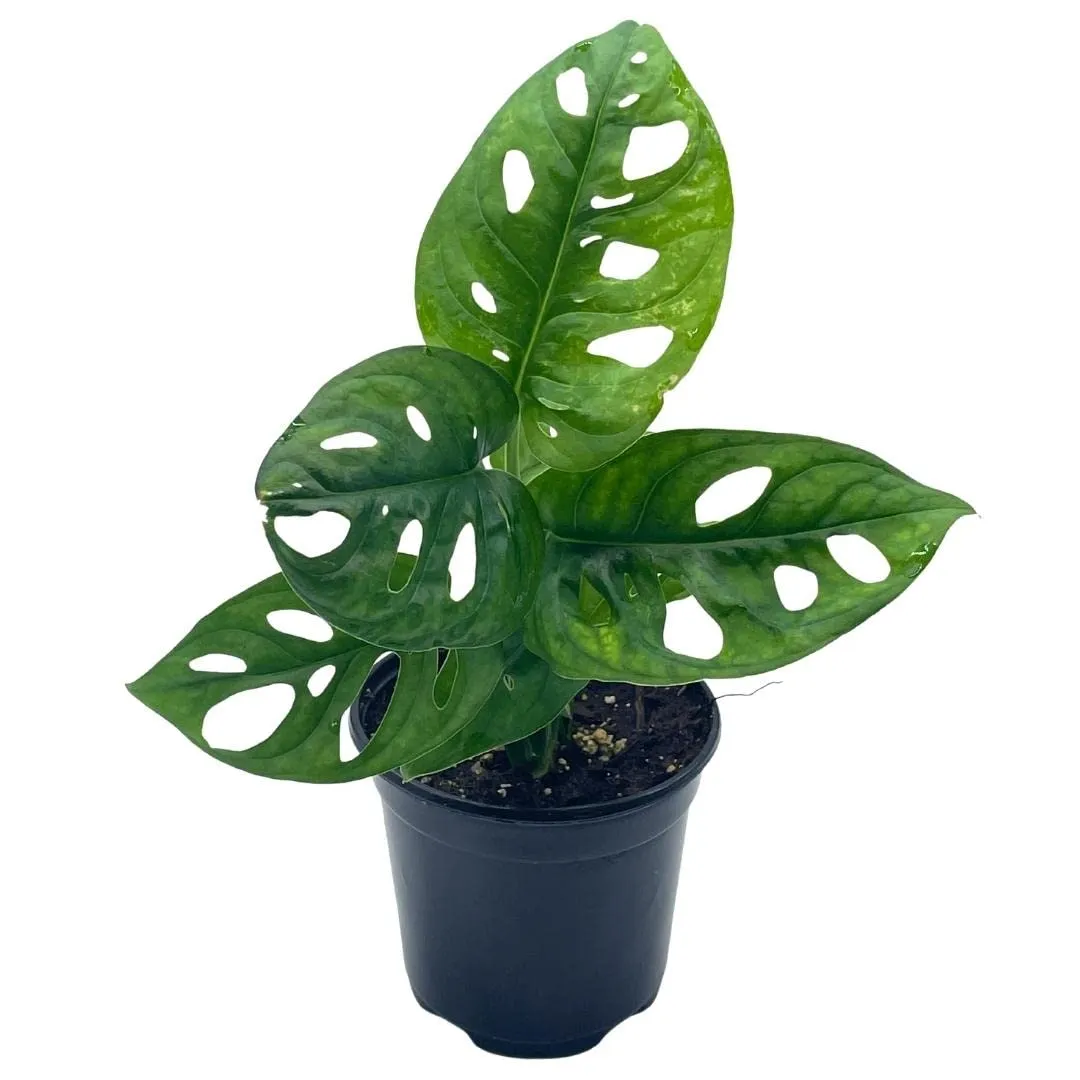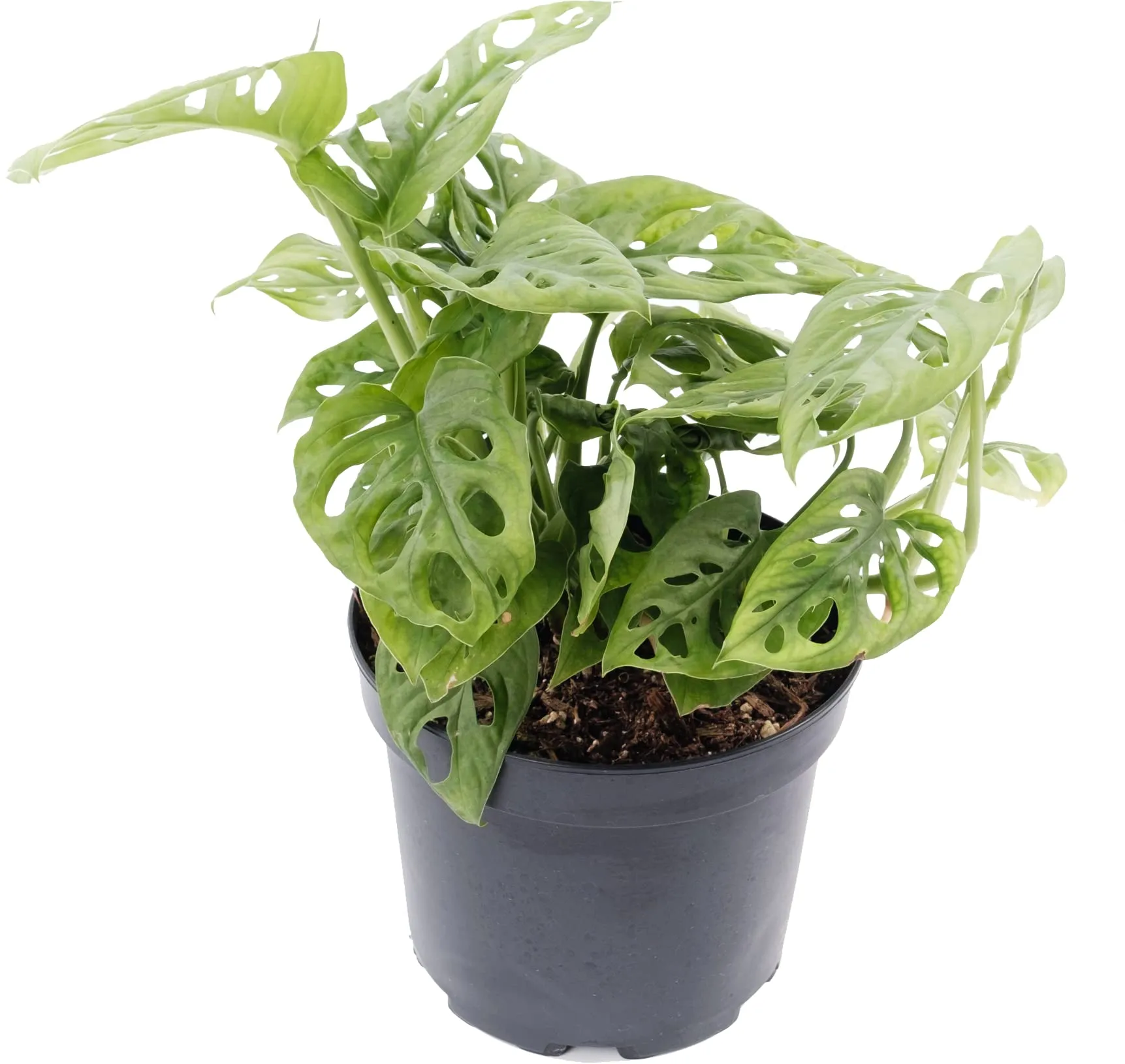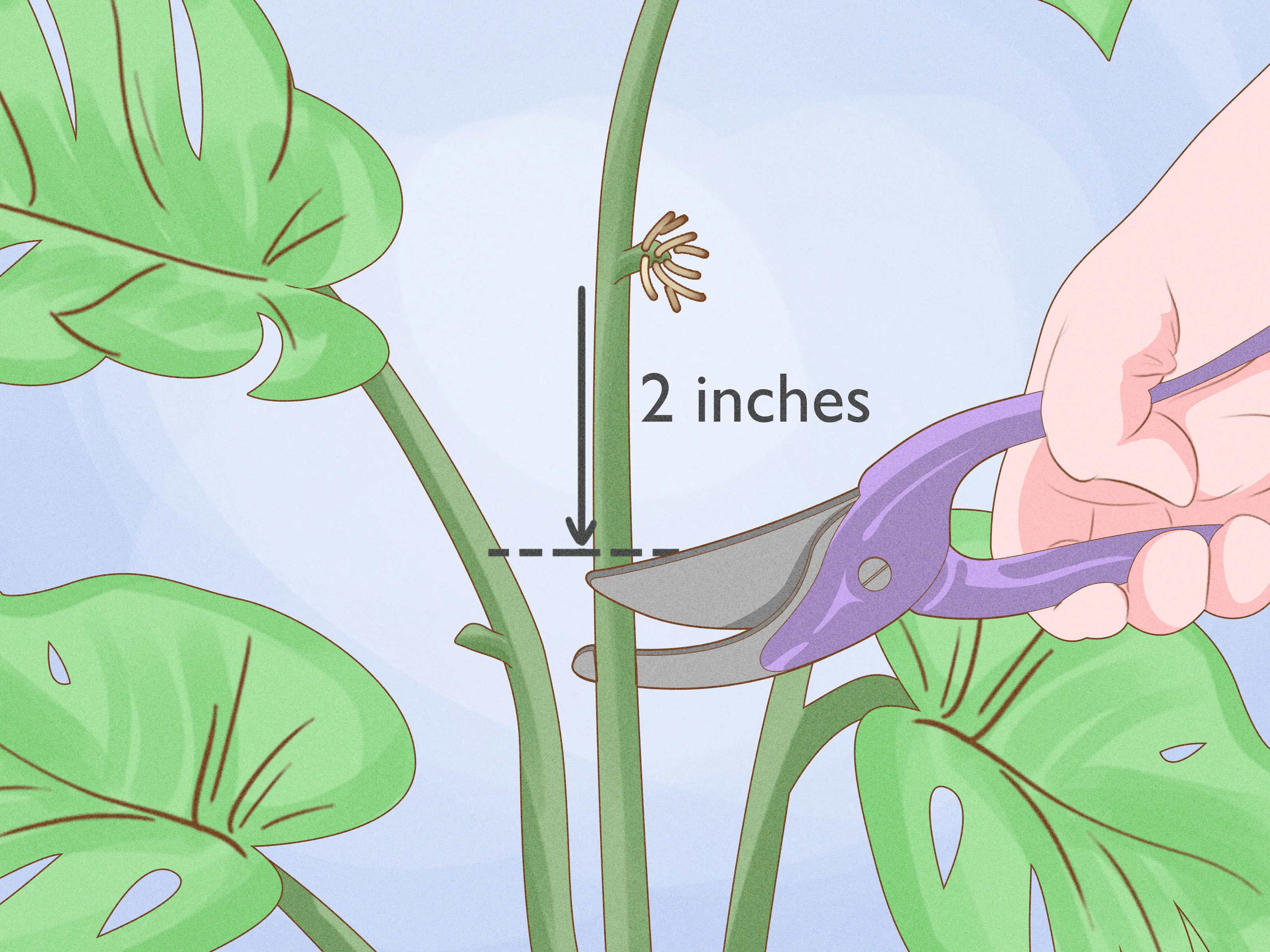Swiss Cheese Plant: A Perfect Addition to Your Houseplant Collection
Houseplants are becoming increasingly popular, and with good reason. They offer a wide range of benefits, from purifying the air to reducing stress levels. One of the most popular houseplants in recent years is the Swiss cheese plant, also known as Monstera deliciosa. This beautiful plant is loved for its unique leaves, which feature large holes or "fenestrations" that give it a distinctive look. In this article, we will explore everything you need to know about the Swiss cheese plant, from its history and origins to how to care for it properly.
A Brief History of the Swiss Cheese Plant
The Swiss cheese plant is native to the tropical rainforests of Central and South America, where it grows as an epiphyte. Epiphytes are plants that grow on other plants, such as trees, without being parasitic. They use their host plant for support but do not harm it. In the wild, the Swiss cheese plant can grow up to 70 feet tall, with leaves that can reach up to three feet in length. The plant was first introduced to Europe in the late 1800s and quickly became popular as a houseplant. Its unique leaves and easy-to-care-for nature made it a favorite among plant enthusiasts. Today, the Swiss cheese plant is one of the most popular houseplants in the world, and it can be found in homes and offices all over the globe.
Characteristics of the Swiss Cheese Plant
The Swiss cheese plant is a beautiful and unique plant that is instantly recognizable. Its most distinctive feature is its large, fenestrated leaves. These leaves can grow up to three feet in length and have large holes or splits that give them a "Swiss cheese" appearance. The holes in the leaves are not just for aesthetics; they also help the plant to survive in its natural habitat by allowing light to reach the lower leaves and reducing wind resistance. The Swiss cheese plant is also known for its aerial roots, which it uses to attach itself to other plants or surfaces. These roots are not harmful and can be left to grow naturally, or they can be trimmed if desired.
How to Care for Your Swiss Cheese Plant
While the Swiss cheese plant is relatively easy to care for, it does have a few specific requirements that you should be aware of. Here are some tips for keeping your plant healthy and happy:
Light
The Swiss cheese plant prefers bright, indirect light. It can tolerate some direct sunlight, but too much can scorch its leaves. If your plant is not getting enough light, it may become leggy and produce smaller leaves.
Water
Like most houseplants, the Swiss cheese plant prefers to be kept evenly moist but not waterlogged. Water your plant when the top inch of soil feels dry to the touch. Be sure to use a pot with drainage holes to prevent water from sitting in the bottom of the pot.
Humidity
The Swiss cheese plant is native to humid rainforests and prefers a humid environment. If the air in your home is dry, you can increase humidity by misting your plant with water or placing a humidifier nearby.
Temperature
The Swiss cheese plant prefers warm temperatures between 65 and 80 degrees Fahrenheit. It can tolerate cooler temperatures, but it may not grow as quickly.
Soil
The Swiss cheese plant prefers well-draining soil that is rich in organic matter. You can use a commercial potting mix or make your own by combining equal parts peat moss, perlite, and vermiculite.
Fertilizer
The Swiss cheese plant benefits from regular fertilization during the growing season (spring and summer). Use a balanced fertilizer every two to four weeks to encourage growth and healthy foliage.
Propagating Your Swiss Cheese Plant
One of the great things about the Swiss cheese plant is that it is easy to propagate. You can create new plants from stem cuttings, which can be rooted in water or soil. Here's how to do it: 1. Choose a healthy stem with at least one leaf node (where a leaf attaches to the stem). 2. Cut the stem just below a leaf node, making sure to include at least one node. 3. If rooting in water, place the cutting in a jar or vase filled with water. Change the water every few days to prevent bacteria growth. Roots should begin to form within a few weeks. 4. If rooting in soil, dip the cut end of the stem in rooting hormone and plant it in a pot filled with moist potting soil. Keep the soil moist and place the pot in a bright, indirect light. Roots should begin to form within a few weeks. Once the cutting has rooted, you can transplant it into a larger pot and care for it as you would a mature plant.
Common Problems and Solutions
While the Swiss cheese plant is generally easy to care for, it can still encounter a few common problems. Here are some issues you may encounter and how to address them:
Yellowing leaves
Yellowing leaves can be a sign of overwatering or underwatering. Check the soil moisture level and adjust your watering schedule accordingly.
Brown leaf tips
Brown leaf tips can be a sign of low humidity or overfertilization. Increase humidity or reduce fertilization to address the issue.
Pests
The Swiss cheese plant is susceptible to pests like spider mites and mealybugs. Check your plant regularly for signs of infestation and treat with insecticidal soap or neem oil if necessary.
Conclusion
The Swiss cheese plant is a beautiful and unique houseplant that is perfect for adding a touch of tropical flair to your home. With its large, fenestrated leaves and easy-to-care-for nature, it is no wonder that this plant has become so popular in recent years. Whether you are a seasoned plant enthusiast or a beginner, the Swiss cheese plant is sure to make a stunning addition to your houseplant collection.
Frequently asked questions about Swiss cheese plant wallpapers
Q: How many Swiss cheese plant pictures are available on your website?
A: We have 32 Swiss cheese plant pictures available on our website.
Q: What is the category of the Swiss cheese plant pictures on your website?
A: The Swiss cheese plant pictures are categorized under "Houseplants".
Q: Can users download the Swiss cheese plant pictures for free?
A: Yes, users can download the Swiss cheese plant pictures for free.
Q: In which file types can users download the Swiss cheese plant pictures?
A: Users can download the Swiss cheese plant pictures in three file types: .jpg, .png, and .webp.
Q: Can users choose the size of the Swiss cheese plant pictures they want to download?
A: Yes, users can choose the size (width and height) of the Swiss cheese plant pictures they want to download.
Q: Does your website automatically detect the visitor's mobile screen size and choose the appropriate picture size?
A: Yes, our website automatically detects the visitor's mobile screen size and chooses the appropriate picture size.
Q: How can users access the Swiss cheese plant pictures on your website?
A: Users can access the Swiss cheese plant pictures on our website by visiting the "Houseplants" category and selecting the Swiss cheese plant pictures.
Q: Do users need to create an account to download the Swiss cheese plant pictures?
A: No, users do not need to create an account to download the Swiss cheese plant pictures. They can download them for free without any registration.
Q: Can users use the Swiss cheese plant pictures for commercial purposes?
A: Yes, users can use the Swiss cheese plant pictures for commercial purposes.
Q: Are there any restrictions on how users can use the Swiss cheese plant pictures?
A: No, there are no restrictions on how users can use the Swiss cheese plant pictures. However, users cannot sell or distribute the pictures as their own.



